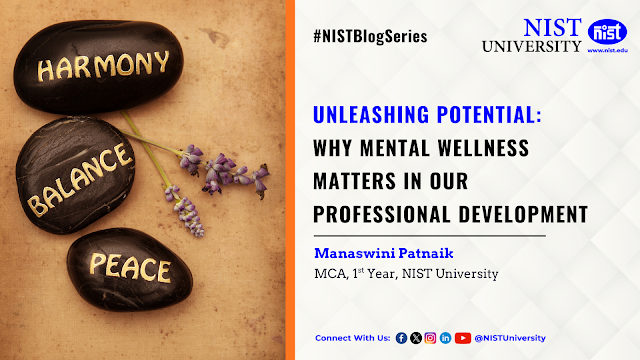CONSIDERATIONS FOR ODISHA AI STRATEGY AND POLICY
The recent brainstorming workshop at Bhubaneswar highlighted several crucial points aligning with the State's and India’s vision for AI advancement. I commend the Odisha government's proactive approach to seeking citizen’s input and the allocation of over INR 10,000 crores for AI research and development underscoring the commitment to foster innovation and enhance the state's technological capabilities.
Odisha's unique blend of natural resources, cultural heritage, and socio-economic challenges presents a compelling case for the strategic deployment of AI. While the state government has taken commendable steps to foster an AI ecosystem, a nuanced yet multi-faceted approach is required to address specific needs and maximize the benefits of AI.
First, we must prioritize equitable AI adoption that ensures marginalized communities benefit from technological advancements. This focus can enhance social equity and prosperity across various sectors. Second, industry-academia collaboration is crucial. By fostering partnerships between educational institutions and industry leaders, we can facilitate knowledge transfer, drive research initiatives, and create a skilled workforce adept in AI technologies. This collaboration should extend to developing indigenous computational models tailored to local needs, ensuring that our solutions are regionally relevant and impactful. One example application is local language chatbots that smartly and reliably address citizen queries.
Moreover, it is essential to establish a strong digital infrastructure that supports local computing capacity for AI development and innovation, supported by policy initiatives. This includes establishing high-performance computing centers and enhancing connectivity, which are essential for handling large-scale AI operations. This infrastructure will enable startups and established companies to innovate effectively while addressing regional challenges in healthcare, cybersecurity, agriculture, education, disaster management, governance, etc.
Additionally, we must emphasize the importance of ethical frameworks and regulatory compliance in AI adoption. As we advance towards an AI-driven future, ensuring responsible use of technology will be paramount in building public trust, equitable benefit sharing, and safeguarding privacy. Here are further recommendations in the context of our state, Odisha:
• Agriculture: Odisha is an agrarian state, with agriculture contributing significantly to its economy. According to the Odisha State Capability and Resilient Growth Program, enhancing agricultural productivity is a priority. AI (coupled with drones) can help in precision farming, pest control, and supply chain optimization by improving crop yields and soil health, reducing water usage, and minimizing pesticide application.
• Healthcare: The state faces challenges in early disease detection and healthcare delivery, especially in rural areas that lack well-resourced PHCs. The Odisha Development Report 2020 highlights the need for improved healthcare infrastructure and services. The integration of AI can significantly enhance healthcare delivery in Odisha, where health indicators like the Infant Mortality Rate (IMR) remain a concern. AI can facilitate early disease detection and prediction and improve patient management systems.
• Education: Strengthening partnerships between educational institutions and industries will enhance research initiatives and align skill development with market needs. There is a need to improve the quality of education, digital literacy, and teacher training, and to ensure regional equity. AI-driven personalized learning platforms and teacher-assistive technologies can help bridge the educational gap and even lessen the Gross Enrolment Ratio challenge. Universities should serve as incubators for AI innovation, facilitating research that directly addresses industry needs and societal challenges. Joint projects, internships, and research collaborations will be key.
• Disaster Management & Climate Change: Odisha is prone to natural disasters like cyclones and floods. AI can be applied to support Odisha State Disaster Management Authority (OSDMA) in predictive modelling, early warning, real-time monitoring, and effective emergency response and decision-making. Addressing climate change and its impacts is a major concern globally, and Odisha’s vulnerability is no exception. Our Climate Budget 2024-25 outlines the state's commitment to climate action. We are developing AI that can assist in environmental monitoring, energy and water management, and sustainable urban development.
• Infrastructure & Economic Development: The World Bank's Odisha State Capability and Resilient Growth Program focuses on resilient growth and economic development. AI can drive innovation, support start-ups, and create job opportunities. Utilize AI to optimize urban planning, traffic management, and energy consumption as envisioned in smart cities. Implement AI-powered systems to monitor the health of infrastructure, such as bridges and dams. Odisha is blessed with over 400 km of coastline whose biodiversity can be both protected and leveraged for economic development using AI and Biotech.
• AI for Social Good: Reducing social inequalities based on caste, sex, and region is important. AI can help identify and address these disparities through data-driven policies and programs. The Odisha Development Report 2020 highlights the need for special development programs to tackle regional disparities. South Odisha region, for instance, can benefit from AI applications in early predictions of dengue or malaria outbreaks, telehealth, precision agriculture, heritage preservation & ecotourism, optimized fish stock management, traffic and urban sprawl management, etc.
• Actionable AI Strategy: Adopt a clear, actionable AI strategy that aligns with national goals while addressing state-specific needs. This strategy should be dynamic, allowing for adjustments based on technological advancements and emerging trends but based on robust data governance.
By implementing these recommendations, Odisha can establish a thriving AI ecosystem that not only contributes to national goals but also drives sustainable economic development and improves the quality of life for its citizens. South Odisha is home to several innovation-driven educational and research institutions. We should create a “hub of thinkers and doers” in south Odisha committed to supporting the vision through institutional resources, research capabilities, and collaborative initiatives.
Stay tuned for more such updates on our official social media: https://linktr.ee/NISTUniversity




Comments
Post a Comment